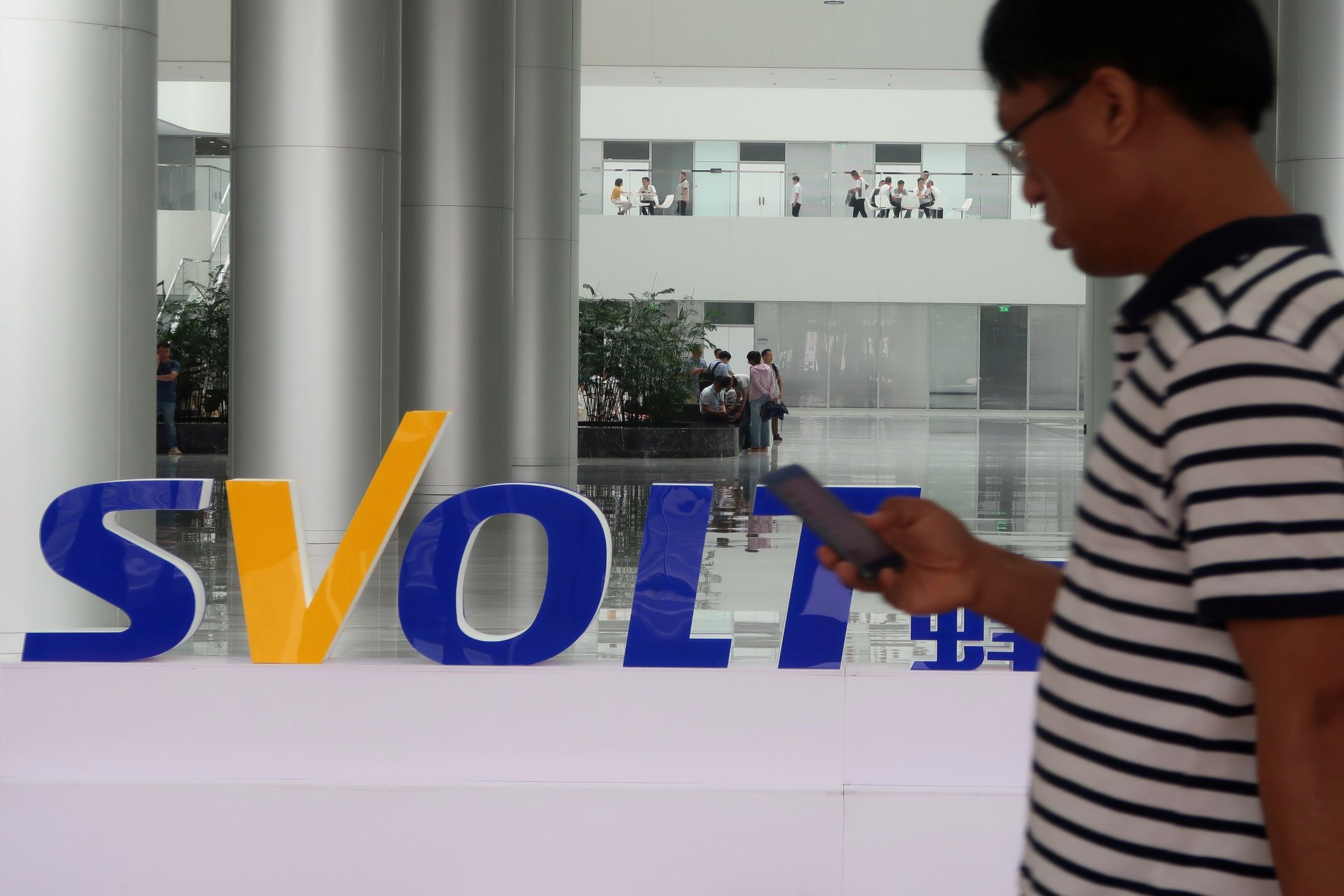Chinese EV battery makers are aggressively expanding production in Europe
Companies such as CATL, Svolt, and Gotion Hi-Tech have all recently announced plans for new European factories.

Sales of electric vehicles in Europe are growing quickly: One in ten new cars sold in the EU now solely runs on batteries, according to the European Automobile Manufacturers’ Association.
That presents lucrative business opportunities, particularly since Europe—the birthplace of the automobile—aims to phase out all petrol- and diesel-powered cars by 2035. As a result, Chinese battery firms, eager to dominate the global EV market, are rapidly expanding their production footprint in Europe.
Chinese EV and battery firms are targeting the EU market
Earlier this month, Svolt Energy Technology, headquartered in the Chinese province of Jiangsu, said it will build an additional cell assembly plant in the German state of Brandenburg, where Tesla’s gigafactory is also located. The new investment adds to Svolt’s 2020 announcement of a planned battery factory in the south-western German state of Saarland, which was originally come online by the end of 2023 but is now facing significant delays.
In August, Chinese battery giant CATL announced that it would build a second European battery plant in Hungary, in addition to its upcoming manufacturing facility in Thuringia, Germany.
At least three other Chinese battery firms, including Gotion Hi-Tech, Envision AESC, and Eve Energy have separately announced plans this year to build factories in Germany, Spain, and Hungary respectively.
Will “Made in China” EVs upend the global auto industry?
The accelerated push by Chinese battery manufacturers into the EU could upend the European automotive industry, which for decades has been globally dominant. Rather than exporting cars globally, Europe may end up predominantly importing Chinese vehicles, while the EVs that Europe does export would be reliant on Chinese batteries and battery minerals.
The shift to EVs also fundamentally alters automotive supply chains by drawing on new inputs and technologies (for example, lithium and batteries, versus petrol and combustion engines).
This can, in turn, reconfigure the relative competitive advantages of incumbents like Germany’s Volkswagen versus emergent players like China’s NIO. What good is a legacy firm’s expertise in technology that’s gradually being phased out, after all, if it can’t compete head-to-head with newcomers on accessing the minerals and batteries needed to mass produce EVs?
While German cars have long been top-selling brands in China, that trend could reverse as “Made in China” EVs grab increasing chunks of the European market. While planned Chinese battery plants in Europe are aimed at supplying auto factories there, this also means increasing the EU’s dependence on Chinese inputs—at a time when the bloc aims to reduce reliance on China for critical raw materials, including battery minerals.
Foreign countries also hold out the promise of untapped revenue streams and profit margins for Chinese firms. CATL’s profit margins, for example, are now higher overseas than domestically.
Crucially, Chinese players have the advantage of a fully developed EV supply chain, spanning mineral extraction and processing, manufacturing of batteries and rare earth permanent magnets, and the production of EVs. By contrast, the Chinese financial news outlet Yicai noted in an article last week (link in Chinese), traditional German auto makers have been too “cautious and conservative,” and failed to build a mature domestic EV ecosystem. That leaves a gap in Europe’s EV industry—which China wants to fill, potentially winning a prized foothold that EU players may find difficult to dislodge.
Chinese EV firms can spot road bumps ahead
Still, Chinese EV and battery makers face their own challenges.
For one, Western governments—led by Brussels and Washington—are ramping up investments in their battery and EV supply chains, in part out of recognition that dependence on China for technologies underpinning the climate economy poses national security risks. The competitive landscape is “quite dynamic,” said Stephen Chan, associate director at S&P Global Ratings.
At home, meanwhile, Chinese EV firms are facing mounting costs and widening losses, compounded by disruptions from covid lockdowns and complicated by the crowded, cutthroat domestic market. That’s another reason Chinese EV and battery companies are looking abroad.
